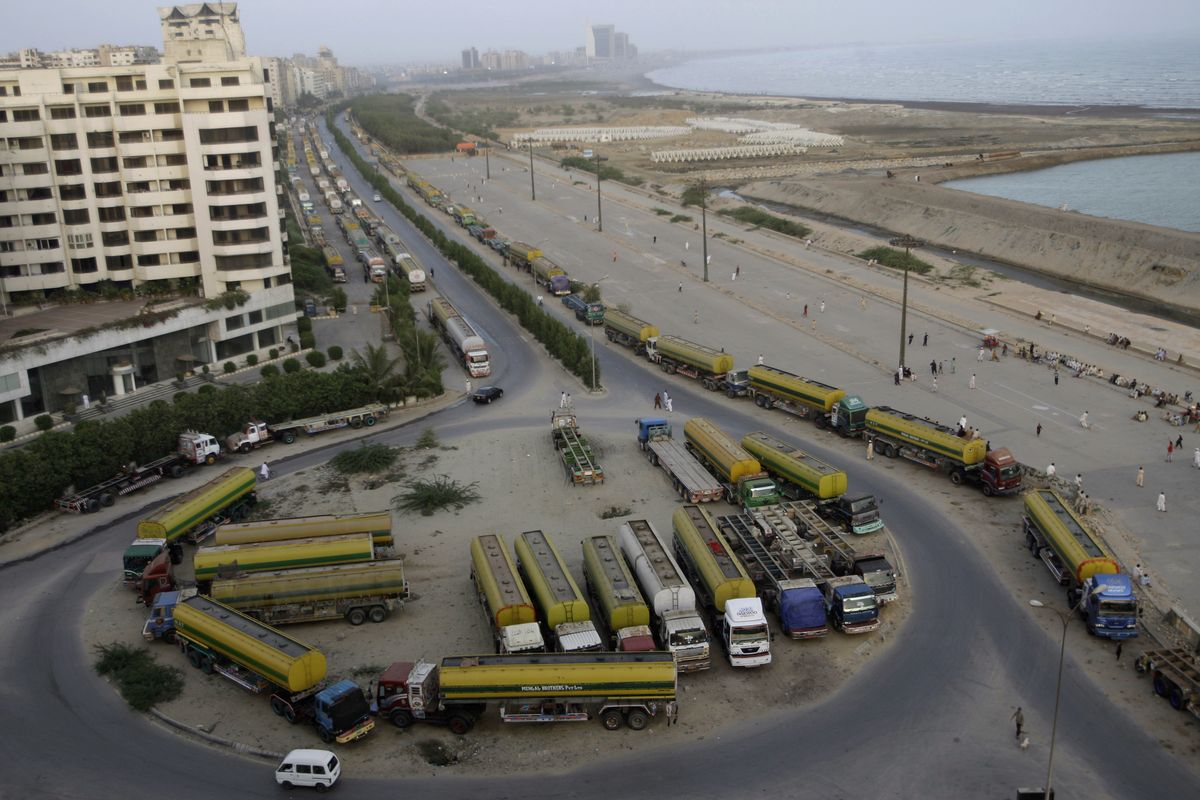Pakistan reopening routes
American apology was first step in repairing alliance

WASHINGTON – Pakistan agreed Tuesday to reopen supply routes to the U.S.-led NATO force in Afghanistan after the United States apologized for the first time for inadvertently killing 24 Pakistani troops who were manning two border posts last November, signaling a new attempt by the nominal allies to repair their severely damaged relationship.
The Obama administration also agreed to ask Congress to reimburse Pakistan $1 billion for the costs of operations against al-Qaida and other terrorist groups, said a U.S. official.
There was no indication, however, that either side had budged on its major demand for restoring cooperation, making it uncertain how far the apparent reconciliation bid may go.
The United States wants Pakistan to drop a refusal to move against sanctuaries within its borders from which the Afghan Taliban and their allies wage their insurgency in Afghanistan; Pakistan is demanding an end to missile strikes on those sanctuaries by U.S. drone aircraft, which it charges violate its sovereignty and kill civilians.
Secretary of State Hillary Clinton announced the reopening of the supply routes from the Pakistani port of Karachi to the Afghan border in a statement in which she also disclosed that she had apologized by telephone to Pakistani Foreign Minister Hina Rabbani Khar for the mistaken killing of the Pakistani troops in a U.S. airstrike Nov. 26.
“I offered our sincere condolences to the families of the Pakistani soldiers who lost their lives,” Clinton said. “Foreign Minister Khar and I acknowledged the mistakes that resulted in the loss of the Pakistani military lives. We are sorry for the losses suffered by the Pakistani military.”
Clinton didn’t disclose the reopening of the so-called ground supply routes until the last paragraph of her statement, casting the decision worth tens of millions of dollars in lower transportation costs almost as an afterthought in an apparent effort to avoid explicitly linking the Pakistani move with the U.S. apology.
“In addition, I am pleased that Foreign Minister Khar has informed me that the ground supply routes into Afghanistan are opening,” said Clinton, noting that Pakistan had dropped a demand for a transit fee beyond the $250 per container the United States had paid to private transport companies before the routes were closed after the Pakistani troop deaths.
Pakistan said the reopening of the routes showed it was “a responsible global partner in stabilizing the region.”
Several Pakistani extremist groups vowed to block the move. Hafiz Saeed, the leader of a militant group on whose head Washington has placed a $10 million bounty, said: “We will lay siege to Parliament. We won’t allow the supply routes to reopen.”
The developments came after months of negotiations between diplomatic and military officials in what was already a poisonous atmosphere after the arrest of a CIA contractor who fatally shot two Pakistanis, the launching of the U.S. raid that killed Osama bin Laden without Pakistan’s permission and U.S. charges that some elements of Pakistan’s security establishment are supporting the Afghan Taliban and their allies.
During the talks, Pakistan demanded that President Barack Obama personally apologize for the deaths of its soldiers, sought a transit fee as high as $5,000 per container and requested up to $2 billion in reimbursement for the costs of its counter-terrorism operations.
Washington proposed a far lower fee and it refused to apologize, in part because a U.S. investigation had found that the Pakistani military shared some responsibility for the inadvertent exchange of fire that led to the U.S. airstrike.
Moreover, the administration felt that apologizing would open it up to Republican criticism after an Afghan extremist group that the United States has linked to Pakistan’s most powerful spy agency staged high-profile attacks in Kabul and other Afghan cities, U.S. officials said.
Finally, the U.S.-led International Security Assistance Force in Kabul was able to ship fuel, ammunition and other supplies by air and via routes that lead through Russia to northern Afghanistan, albeit at an estimated $100 million per month more than the costs of using the Pakistan routes.
But the cheaper Pakistani routes have become increasingly important for shipping equipment out of Afghanistan as the United States accelerates a combat troop withdrawal. In addition, some U.S. officials see the Pakistani military’s cooperation as crucial to completing the pullout, opening negotiations on a peace accord with leaders of the Taliban-led insurgency and fighting al-Qaida and other extremist groups.